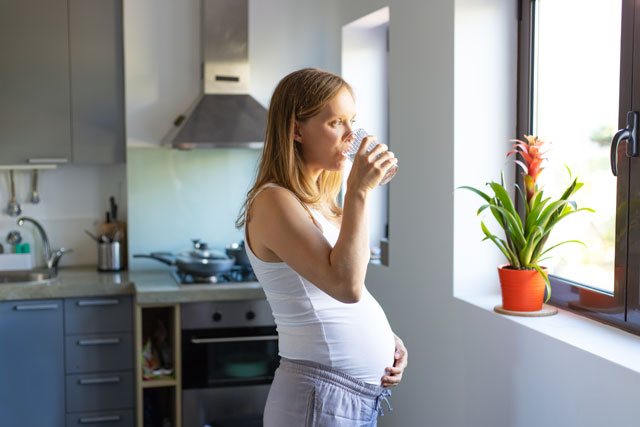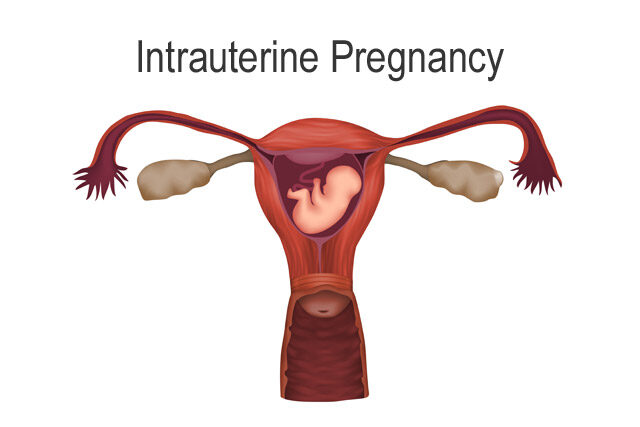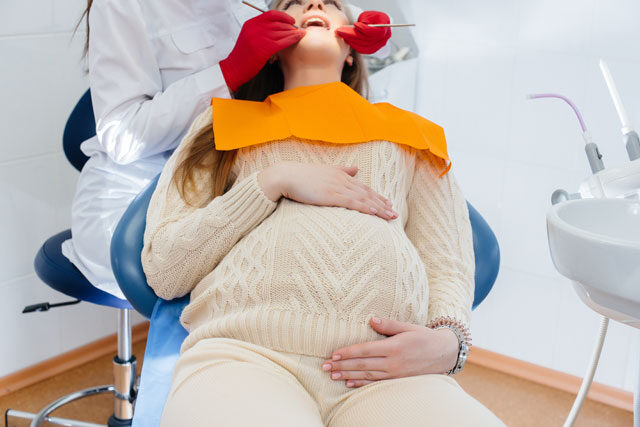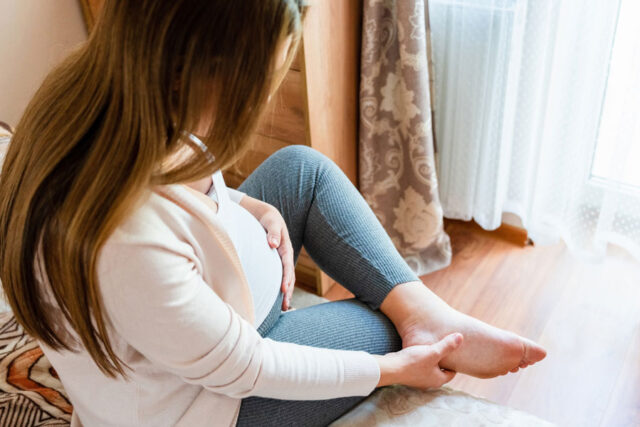How Much Water Should You Drink When Pregnant?
During pregnancy, you need water both for you and your baby. Water is needed to form the amniotic fluid that surrounds the fetus, produce blood, create new tissues, build a placenta that carries nutrients to the baby, provide proper digestion, and help the body get rid of waste. This is why a woman with child needs an increased volume of water during pregnancy.
The American College of Obstetricians and Gynecologists says that pregnant women should drink 8 to 12 cups (64 to 96 ounces) of water daily. Proper hydration means a lot for the health of the future mother and her child:
- reduces the risk of constipation and/or hemorrhoids;
- reduces swelling: the body will less likely retain water when getting enough of it;
- helps to maintain skin turgor making it softer and more elastic, less irritable;
- prevents overheating;
- provides healthy fetus development;
- reduces the risks of pregnancy complications.
What is dehydration in pregnancy?
Dehydration is a condition when there is not enough water in the body to properly function. Water deficiency happens when the organism loses fluids faster than gets them.
Causes
The common possible reasons why a woman gets dehydrated are:
- Not changing the volume of fluids she takes daily. As the body spends more water during pregnancy, the usual water intake may be not enough.
- Drinking and eating products that have a diuretic effect and cause more urination. Caffeine is one such product. Some fruits and greens, such as grapes, watermelons, onions, asparagus, celery, or bell peppers, also may be diuretics.
- The use of diuretic medications and existing unmanaged conditions, like diabetes, can also cause increased urination.
- Excessive exercises that cause a lot of sweating which is also a form of water loss.
- Prolonged exposure to the sun (spending time outdoors in summer, sunbathing, tanning), staying in heated, poorly ventilated rooms without being properly hydrated. That actually leads to a cycle: improper hydration makes the body unable to cool in a natural and effective way, and more overheating gets you more dehydrated.
- Morning sickness: strong nausea may cause vomiting, and with vomit masses, the body loses a lot of fluids.
- Food poisoning, intestinal infections, or digestive disorders that lead to diarrhea (having loose and watery stool).
- Feverish conditions, such as flu.
Symptoms
The symptoms listed below are common dehydration signs in pregnancy. Depending on its stage, water deficiency will be of different severity and, thus, will manifest differently. The sooner you recognize the signs of dehydration, the easier will it be for you to manage it. For example, mild dehydration only requires you to start drinking more water, maybe taking electrolytes solutions to replace magnesium and potassium salts that you’ve lost with the fluids, while more severe cases will demand the medical intervention.
Mild to moderate levels of dehydration come out as:
- Maternal overheating. The Centers for Disease Control and Prevention list skin warmness and hyperemesis (redness), headache, dizziness, muscle cramps, and nausea as signs of overheating. A pregnant woman’s risk of heat stroke, heat exhaustion, and furthermore dehydration increases if her body temperature is higher than 102.2 degrees Fahrenheit.
- Headaches, dizziness, sluggishness.
- Dark yellow urine color. With proper hydration, urine is of light yellow to amber-yellow color and quite clear.
- Thirst is a natural call from your body to increase your water intake.
- Dry mouth, reduced urination and sweating are the signs that your body tries to save its water which means it has not enough of it.
- Dry and less elastic skin.
- Constipation.
If nothing is done to return your water balance to normal, dehydration may become severe which is accompanied by:
- Extreme thirst.
- Mouth dryness increases and spreads to mucous membranes.
- Mental state worsens, the person gets confused or easily irritated.
- The amount of urine decreases from very little to no urine at all; it is also very dark.
- The eyes become sunken.
- Blood pressure drops which lead to light-headiness or fainting, especially when standing up sharply (the condition called an orthostatic collapse).
- Rapid breathing and tachycardia (fast heartbeat).
- The pattern of baby movement is changing.
Severe cases of dehydration demand staying at the hospital where the patient will be provided with saline to replace lost water and electrolytes. Also, the monitoring of the mother’s and baby’s health will be required so the medical professional can deal with the complications that may arise.
Pregnancy Complications
As having enough water is essential for normal baby development, dehydration can cause many health issues which affect both the mother and the fetus, including:
- Swelling.
- Kidney stones.
- Drop in the amniotic fluid levels, which can affect the baby’s development, cause preterm labor, and affect the flow of breast milk.
- Birth defects, including spina bifida which affects the spine.
- Infections of the urinary system, which can cause preterm labor and preterm birth.
- More often and painful Braxton-Hicks contractions also known as “practice contractions” (they are not the actual start of the labor).
- Miscarrige threats.
- Blood clots.
- Seizures.
Prevent dehydration during pregnancy
To prevent dehydration, one should watch closely a couple of main things regarding their everyday activity:
- The amount of water you are drinking should comply with medical recommendations;
- Avoid being in the sun and overheated rooms;
- Avoid excessive physical overworking;
- Watch closely what effect has on your body the products and medications you take and remember the balance out those that cause you to urinate more often;
- Enrich your diet with watery fruits, vegetables, and soups, as they contribute to your hydration, too.
When To Call A Doctor
These symptoms mean that you should contact your healthcare providers and ask for medical help immediately:
- The baby changes the way they move.
- There is bleeding or fluid leaking.
- You have been vomiting or suffering from diarrhea for more than 12 hours.
- You already are under observation for another medical condition like kidney failure.
- You experience fainting, are feeling confused, or have a seizure.
- There is bleeding or fluid leaking.
- Sweating and urination almost or completely stopped.
Summary
Getting a proper amount of water is especially essential during pregnancy. Water deficiency can lead to serious complications and harm both mother and her baby. The pregnant woman should be drinking 8 to 12 glasses of water daily to provide for her and the baby’s health needs.
FAQ
Is dehydration in pregnancy dangerous?
Yes, dehydration causes many serious complications affecting the woman and the fetus.
Does dehydration affect the baby in pregnancy?
Yes, water deficiency can cause birth defects, premature labor and birth, or even contribute to miscarriage.
How do I know if I’m dehydrated while pregnant?
The common signs of dehydration are maternal overheating, thirst, mouth and skin dryness, swelling, and changes in urination.
How can I rehydrate during pregnancy?
With mild dehydration, it is enough to just drink more water; more severe cases require the use of special solutions or even IV-rehydrating.




